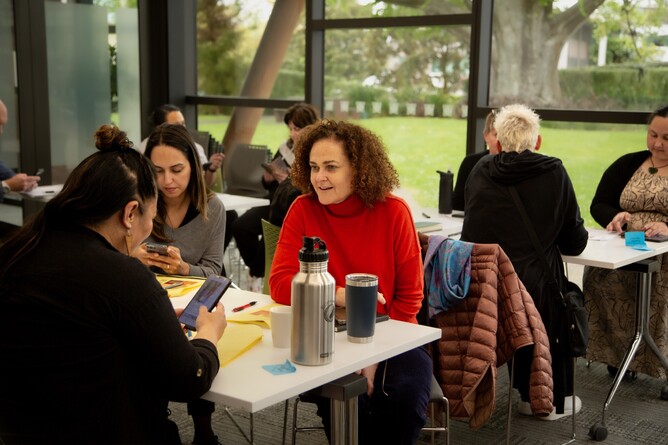For the past few months, we’ve had the privilege of working with a phenomenal group of 15 local wāhine, each leading inspiring social enterprises or changemaking initiatives, as part of our Female Founders Forum programme.
Last week, we came together for an insightful session focused on impact measurement.
Impact measurement is an essential practice for any organisation that is creating meaningful, sustainable change (it helps ensure your changemaking efforts are both purposeful and effective).
We LOVE this topic, so we thought we'd share a couple of the key takeaways from this workshop that will enhance your approach to measuring and managing your impact.
1. Align Impact Measurement with your Theory of Change
The foundation of effective impact measurement begins with your Theory of Change - that is, the roadmap that connects your activities to the broader outcomes and the impact you aim to achieve.
A well-developed Theory of Change helps you clearly define the problem you are addressing and the steps you are taking to solve it. It provides the framework for identifying the metrics that matter, and ensuring your efforts are aligned with your goals.
This alignment is important to:
prove the effectiveness of your services: By aligning your measurements with your Theory of Change, you can demonstrate that the outcomes you are achieving directly support the needs of the communities or ecosystems you're serving. This is critical for funders, stakeholders, and communities who want to see tangible results.
improve decision-making: A robust measurement process helps you identify where your resources can be best allocated, where there is room for innovation, and where collaboration might enhance your efforts. By continuously refining your approach, you can become more effective and efficient in the impact you are creating.
2. Use the 5 Dimensions of Impact
There are many tools and frameworks that can be used for impact management. Impact Management Project's 5 Dimensions of Impact framework was one that we explored during the workshop that may be helpful for your own efforts. This internationally-recognised structure helps organisations measure their impact across multiple factors.
Here’s a brief overview of the 5 dimensions:
What: What outcome occurs during the reporting period? And how important is this outcome to the people or planet experiencing it?
Who: Who is experiencing the outcome? Are these individuals underserved or particularly vulnerable?
How much: How significant is the outcome in terms of scale, depth, and duration?
Contribution: Would this outcome have happened without your intervention, or are you adding unique value?
Risk: What is the risk that the intended impact will not occur as expected, or that there could be unintended consequences?
These 5 dimensions can help you track the scale of your impact, and ensure that you're paying attention to the quality and relevance of the outcomes.
Bring everyone along
Impact measurement is most effective when done collectively. To get a sense of the value you're creating, it’s important to bring your team and community along on the journey.
Do so will result in more accurate, actionable data. Your community often has unique insights into how you're work is affecting them - and by actively involving them in the process, you can ensure your measurements reflect the realities of those who matter most.
This can take a bit of extra time and effort, but the long-term results are worth it. The more inclusive your impact measurement process, the more informed and adaptable you will become.




